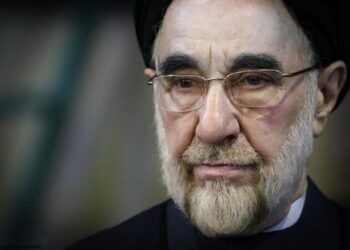Reuters said shipments are exceeding demand and are filling up storage tanks all across the Eastern Hemisphere as fears of Iranian oil being shut out of the market prompt buyers to stock up.
The one part of the world where storage tanks are not overflowing is the Americas—the one part of the world where Iran doesn’t sell its oil.
Reuters noted that the rising stockpiles are coming at a time of slowing growth in China and contraction in Europe, two markets that account for one third of the world’s demand for oil.
Saudi Oil Minister Ali an-Naimi said last month that he calculates the global market is now getting about 2 million barrels a day more than it needs. Recent estimates put Iran’s exports last month at 1.9 million barrels a day. (See last week’s issue of the Iran Times, page one.) In other words, if those numbers are correct, the world doesn’t need any Iranian oil at all right now.
Olivier Jakob, managing director of Petromatrix GmbH, a Swiss research firm, told Reuters, “There’s an effort to rebuild stocks in case something happens with Iran, but consumption is actually quite weak right now.”
Saudi Arabia, the world’s largest oil exporter, has boosted its production by 18 percent since the end of 2010, first to compensate for the decline in Libyan exports in 2011 and now to replace Iranian exports this year. Naimi said last month that Saudi Arabia’s storage facilities—not only in Saudi Arabia but also in Japan, Egypt and the Netherlands—are now filled to the brim because it hasn’t been able to sell all its output.
PJK International of the Netherlands said storage tanks in Rotterdam, the main oil port in Europe, are normally 70 to 80 percent full, but now appear to be up to 90 percent.
Even with increased Saudi output, Naimi said his country still has 2.5 million barrels of spare capacity ready to supply the market if need be. In other words, he was saying the Saudis could replace all Iranian current crude exports and still have 600,000 barrels a day of untapped capacity.
The major consuming nations started strategic stockpiles of crude after the 1973 oil crisis. Those government-owned strategic stockpiles now hold 1.5 billion barrels, according to the International Energy Agency. That is enough to replace Iran’s current exports of 1.9 million barrels a day for two years and two months. Those stockpiles have not been touched. But France has been pushing for a draw on those stockpiles to depress prices and further pinch the Islamic Republic. French Prime Minister Francois Fillon said last Thursday that negotiating on tapping the stockpiles are nearing an agreement.
Iranian exports are now down 24 percent compared with last year’s average, while the price of an OPEC barrel is now up 15 percent compared with last year’s average. But last year’s prices were so high that the Islamic Republic is still raking in huge revenues, sums higher than in any year other than 2011.
Iran’s exports will have to be reduced much more and/or the price pushed down substantially before the Islamic Republic will really feel a financial pinch.














